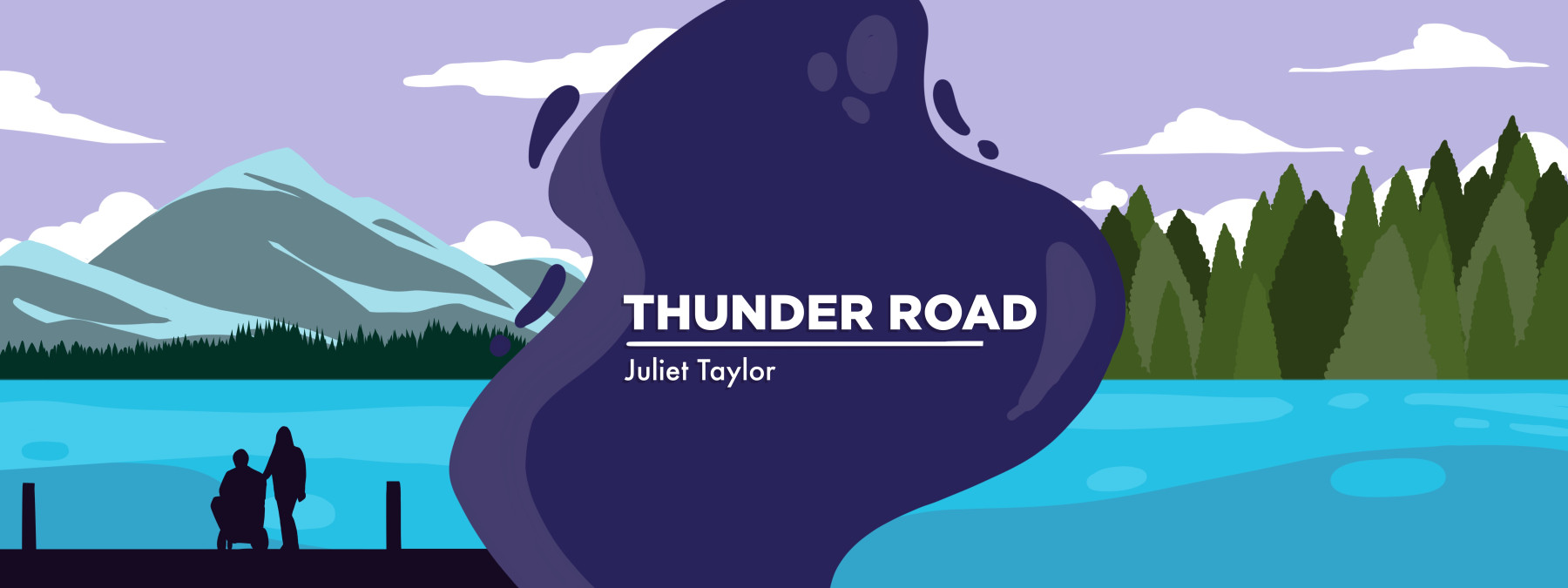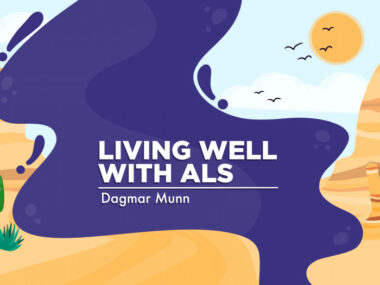What I can’t accept about ALS, despite years of processing it
How a normal part of healing for some remains elusive for me
Written by |

It was seven years ago this summer that I unwittingly and unwillingly became a part of the ALS community when my late husband, Jeff, began exhibiting foot drop and slurred speech, symptoms that were worrisome enough for us to seek medical answers.
His relatively quick diagnosis of ALS that fall was unexpected and shocking. Learning that Jeff had a terminal illness amid the relative peace of our everyday lives shattered our plans and, perhaps just as painfully, the ability to dream about them. We wouldn’t be moving to the beach or taking an international work assignment in England. He wouldn’t be building a backyard swing set for future grandkids. Of all the things ALS takes, dreams for the future can be among the most starkly painful.
At the same time, ALS robbed us physically, too. It was the first close-up exposure to serious illness for either of us. A longtime athlete, Jeff mourned his aggressive loss of function and growing inability to complete tasks he’d always taken for granted. I’d never heard the constant whirring click of a power wheelchair or seen a medication port, something Jeff had installed for the infusions that I administered to him 10 days a month. Living with ALS, and remembering it, are visceral for me.
It’s normal and healthy to look for meaning in this experience, and much of the reading on illness and grief suggests that the concept of acceptance is important to coping. Experts assert that acceptance helps chart a path forward with our feelings, our growth, and eventually, our healing. The dictionary likewise tells us that accepting means agreeing to something as satisfactory, reasonable, or true.
With ALS, however, I find the opposite. There’s nothing satisfactory or reasonable, nothing acceptable, about ALS. Making sense of it eludes me.
While I think it’s possible that Jeff and I reached a point of accepting his diagnosis in the weeks after it came, our acceptance of anything else about ALS stopped there. We never understood the changes it brought to our lives: the lack of treatments and cures, the frustrations and fears of daily care, or the regular battles with his insurance company, which necessitated me writing angry letters far more often than I would’ve liked.
What does it mean to accept ALS?
In a world where acceptance is encouraged and healthy, so many things about ALS are impossible to tolerate, nor should we. Parents who won’t get to see their kids graduate from high school, or meet their grandchildren, as was the case with Jeff. Parents who lose a child, or children, to this disease, disrupting the natural order of life. Kids, conversely, who lose their mom or dad or sibling at a too-young, or really any, age. Partners who lose a soul mate or companion. Individuals and families who lose their life savings paying for medical equipment that insurance won’t.
Acceptance to me connotes an understanding of why something needs to be the way it is. I find that difficult with ALS. A good example is the relentless pace of new diagnoses. The Centers for Disease Control and Prevention reports that in the U.S., “every year about 5,000 people are told by their doctor that they have the disease.”
It feels helpless that treatment options are still limited, that cures evade us, more than 150 years after ALS was first identified and more than 80 years after Lou Gehrig’s diagnosis and death. Many in the ALS community share a belief that ALS is not incurable; it’s underfunded, which makes our lack of progress even more untenable.
With ALS, acceptance eluded me when Jeff was living with it, and it eludes me today, more than five years after his death. It’s a helpless and frustrating feeling. I’ve accepted aging and the fact that I’ll never achieve certain things. The gift of growing older has helped me sharpen my focus and informs how I spend my time. These things are acceptance.
The question can become what to do with this lack of acceptance, which can manifest as ongoing feelings of anger, frustration, and despair. Some people turn to faith, some to advocacy, some to new activities and lives, or all of those.
One thing that works for me is hope. I hope that one day, sooner rather than later, we’ll have cures that render ALS a disease of the past. I look for reasons to hope, and for ways to find hope and community with others. Hope is an important tool in maintaining faith and optimism in dark times of illness, funding cuts, and loss. Action and advocacy work, too.
I look forward to accepting ALS, but only if it’s in the past. Until then, I’ll keep writing and fighting and loving my people.
Note: ALS News Today is strictly a news and information website about the disease. It does not provide medical advice, diagnosis, or treatment. This content is not intended to be a substitute for professional medical advice, diagnosis, or treatment. Always seek the advice of your physician or other qualified health provider with any questions you may have regarding a medical condition. Never disregard professional medical advice or delay in seeking it because of something you have read on this website. The opinions expressed in this column are not those of ALS News Today or its parent company, Bionews, and are intended to spark discussion about issues pertaining to ALS.







Yi Yang
Hi, Juliet,
I am an ALS patient diagnosed about 2 years ago. I fully agreed with you that the acceptance is eluding, imaging how to get a courage for a death-row prisoner! Right now we have to continue to arise the awareness and support for new drug discovery and meanwhile, try/hope to live up the arrival of the true medicine. - Yi
Sandra D Sheare
This article is exactly how I feel. I must continue to fight for a cure for this horrendous disease. No family should have to go through this. Our baby sister, 50 years old, was diagnosed in July 2024 and has progressed fast. It is so unfair what she is enduring. And our hearts are so broken for her. I am 12 years older, and I would trade places with her in a heartbeat. She should be able to live a little longer than 50 years. She was promised that she could enroll in clinical trials, have access to drugs, and have a team especially for her. We found none of this to be true. I continue to fight for easy access to trials, drugs, and a better support system for ALS patients. God bless you and may your husband rest in peace.
Richard Knox
I've just been diagnosed with ALS, we, my wife and grown children are coping as best possible. My daughter is booking us to all go to Disney in February and pack as much time with the grandkids as possible. I'm ok with that. We all have cried our share of tears for now, and I'm planning for the long haul, but know it could change quickly. I know I'm not alone in this fight.
José-Luis
Juliet Tylor’s post touched me a lot. My spouse was diagnosed with ALS around three months ago. I wonder if I can contact Juliet just to have a conversation to get strength and courage during this difficult time in our lives.
Judith Laico
First and foremost I am very sorry for your loss and struggles you've been through. I lost my husband in September 2024. Unlike your husband, my husband, John was 84 when diagnosed and passed 10 months later. John had the bulbar onset so he had mobility until the very end. I too am frustrated that there is no cure in sight and that unless you go through it, no one knows the struggles from care to finances and ultimately the pain of losing your soul mate and knowing there was nothing you could do to help stop the progression of this disease. Thank you for writing this and I will continue to hope for a cure one day.💔